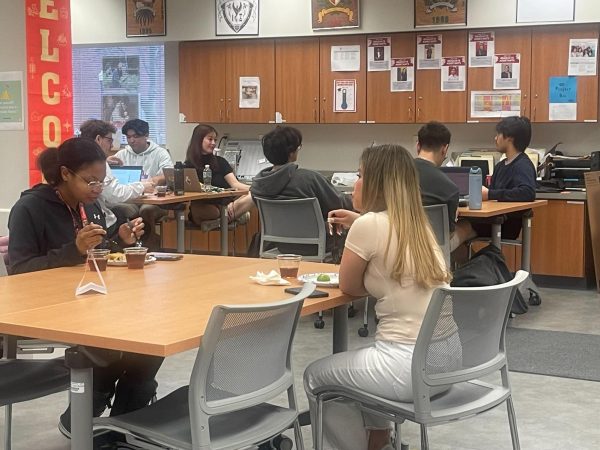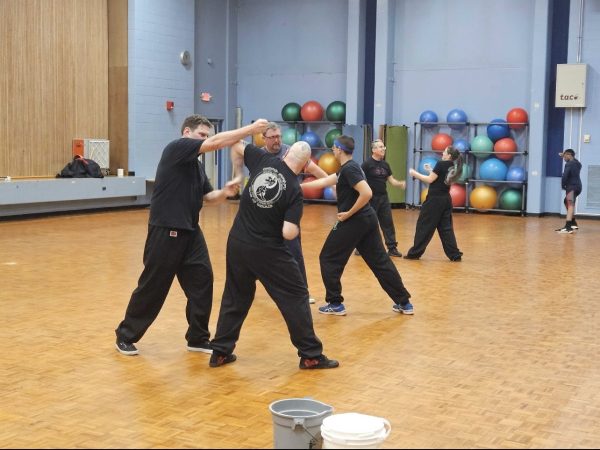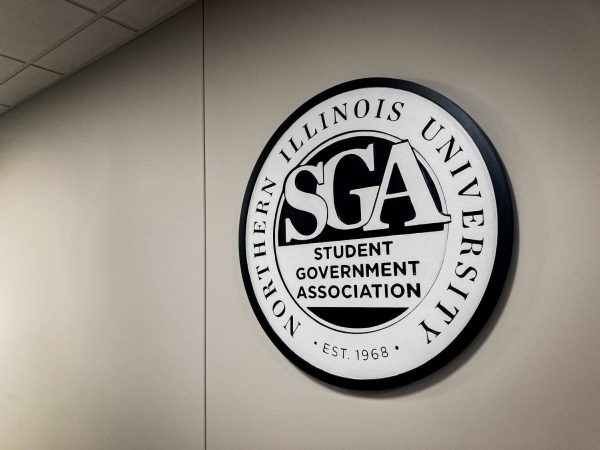University Health Service prepares for possible SARS cases
April 16, 2003
Severe Acute Respiratory Syndrome (SARS), a mysterious pneumonia-like illness, is breaking out around the world, but if it shows up at NIU the University Health Service has a plan to handle it.
According to a report by the Centers for Disease Control and Prevention, the symptoms of SARS are similar to the symptoms of many other diseases; they usually include a fever above 100.4 degrees Fahrenheit, a headache, body aches, a cough and difficulty breathing.
Right now there are 149 suspected cases of SARS in the United States, seven of which are in Illinois.
arol Sibley, registered nurse and coordinator of Preventive Medicine at NIU’s Health Service, said the majority of NIU students probably do not have to worry about getting SARS; the people most at risk are those who have recently traveled to such places as Hong Kong, China or Singapore or have been in contact with infected people.
Even though SARS is not an immediate threat to NIU, Sibley said the University Health Service is treating it as if it could show up here.
“We have a plan that is constantly being changed and updated as more information comes in from the World Health Organization,” she said.
This plan consists of a way to deal with a student who is actually sick with SARS and a way to deal with a student who has traveled to a high risk area or been exposed to the disease but is not sick.
Sibley said if a student came to Health Services with a disease that possibly was SARS, that student would first be isolated from exposure to others.
Because many symptoms of SARS are also symptoms of other illnesses, the Health Service would have to establish that the student actually had SARS. If the student did, then he or she would be taken to the local hospital.
If a student came to the Health Service because of possible exposure to SARS, but the student was not not showing symptoms, then the Health Service would give the student a mask to wear and tell him or her to stay at home for 10 days and avoid contact with others during that time.
Sibley said that masks can help prevent the spread of SARS because the disease is thought to be either airborne or spread by droplets from coughing and sneezing.
However, Sibley also said it is not necessary for students to go around wearing masks right now.
The best way people can protect themselves now is by frequently washing their hands, said William Oleckno, professor in public and community health programs in the School of Allied Health.
“It’s simple but important” he said. “Because experts think SARS is spread by droplets, the disease can get on objects like doorknobs and tables. You can’t constantly wash, but if you’re around an area where people are sick, then wash your hands after.”
The future of SARS is uncertain. Scientists still are not exactly sure what organism is responsible for the disease, but they believe it is a mutated corona virus.
There is talk about developing a vaccine, but Oleckno said that would take at least a year.
The most important thing to do right now is to not panic, Oleckno said.
“When you look at the number of cases of SARS on a world scale, it’s a very small number,” Oleckno said. “Avoid those areas where SARS has been diagnosed, but put it all in perspective. Don’t fear going out of the dorms.”












